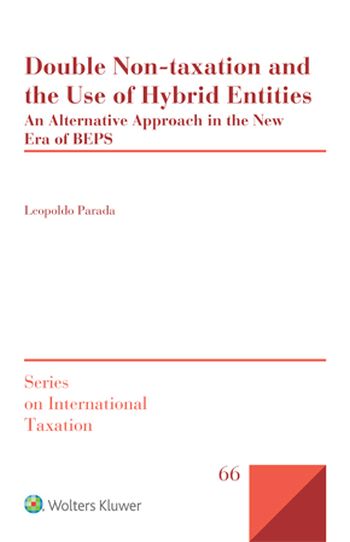
Double Non-taxation and the Use of Hybrid Entities provides a critical review of the Economic Co-operation and Development’s (OECD’s) approach in Base Erosion and Profit Shifting (BEPS) – Action 2 and proposes a deeply informed alternate method based on the tax policy aims of simplicity, coherence and ease of administration. The topics of double non-taxation and hybrid entities have acquired particular importance in a context where transformations within the tax world seem to be leading to an international commitment most materially manifested in the OECD BEPS project. This book provides a consistent option to address the issues of hybrid entity mismatches, which may be used as a point of comparison with regard to the current OECD BEPS proposals and as a viable alternative for tax policymakers.
What’s in this book:
The author analyzes the interaction between the double non-taxation outcome and the use of hybrid entities in an approach not strictly linked to any specific tax jurisdiction. To this end, the analysis includes case studies and examples from a range of jurisdictions emphasizing the international tax context, including the application of tax treaties. Among the seminal matters covered are the following:
This book will prove to be of immeasurable value to practitioners, tax authorities, policymakers and academics concerned with international and EU tax law merely for its unparalleled clarification of the issues. Beyond that, as an authoritative guide that promises to reorient the discussion to what really matters in the debate regarding double non-taxation and hybrid entities, this book elaborates on solutions applicable to a generality of cases worldwide, clarifies that a more fundamental solution with regard to hybrid entities brings more consistent tax treaty outcomes, and hugely promotes the urgent quest for alternative solutions.